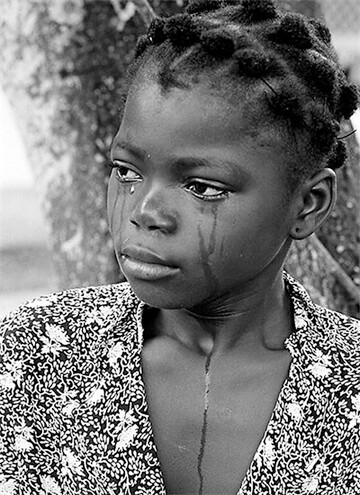
Church called to help local sex traffic victims
The fact that there may be as many as 5,000 teenagers and young women working as prostitutes on the streets of Washington startles most people. But as Mount Vernon Place UMC begins to become more deeply involved with its community, the congregation is finding that a hard fact to ignore.
About six months ago, when she arrived at church before 7 a.m., the Rev. Donna Claycomb Sokol began noticing women clutching cell phones and small purses, in high heels and higher hem lines, walking aimlessly by the church. 
Sokol felt deep concern for the women and shared what she had seen with the congregation, asking the church to pray with her. Concern spread.
“We want to do something, we need to think about who our neighbors are at all times of the day that we should be serving,” said member Jennifer Bonsall, co-chair of the church’s serve team.
Bonsall and the team began researching local groups that worked with prostitution issues, and came across a D.C. non-profit, Courtney’s House, which began last year and in January 2010, will open the first long-term shelter for young sex traffic victims in the area.
The church’s service team reached out and in mid-August, Tina Frundt stood in front of a few dozen church members and friends to talk about a huge issue that no one talks about: prostitution.
Frundt knows the horrible circumstances of the system because she herself had been trafficked, starting at the age of 14, by an abusive pimp.
Frundt taught the church members about how prostitution ensnares, how young women get lured into the terrible trade in their teen years, when a pimp buys them expensive shoes or clothes, gives them rides to school and offers love. Then girls trust the man enough to leave home with him and then find themselves working for manipulative pimps who beat them into submission and demand that women live and work by a series of street “rules.”
Find out more about Courtney's House www.courtneyhouse.org.
Most prostitutes, Frundt said, must earn a quota every day — sometimes over $1,000 –- and every cent goes to the pimps, who scheme like shrewd businessmen, refusing to allow women back into the house until they meet their quota.
Women can’t easily leave the trade because they have no money, few skills, no confidence, no housing of their own and no one to turn to for help, Frundt said. And instead of being seen as victims to be rescued by police, prostitutes are ticketed or arrested.
The perception is that sex trafficking is a problem in other countries, but according to Frundt, it’s widespread throughout the U.S., with major hubs in D.C., Chicago, New York and Los Angeles. She estimates that more than 1,000 pimps and 5,000 teens or young adults operate in the D.C. area alone.
“I’ve been working on this issue for about eight years,” said Frundt. “When you have a passion, it’s because of the grace of God.”
Her non-profit, Courtney’s House, started up last year and serves U.S.-born, sex trafficked girls, 11 to 17 years old. Through Courtney’s House, victims of sex trafficking are rescued from the streets and begin to heal and prepare for a healthy life.
Each Friday and Saturday from midnight to 5:30 a.m., Frundt, her development director and other female volunteers who have received extensive training reach out to women on the streets, offering water, chips, gum and a small pocket mirror with the hotline number to call for help. Carefully checking to make sure a pimp isn’t watching, Frundt must quickly introduce herself and tell the woman about the hotline number she hands them.
Survivors of sex trafficking answer the hotline calls, and the non-profit helps the young women get counseling, housing and tutoring. Emergency services are available for those age 18 and up.
In January, Courtney’s House will have a place to call home – a large, rented house on a church property in northern Virginia. There is already a waiting list of 40 people for the 10 beds at the future long-term shelter.
To make the dream possible, the non-profit needs volunteers to do everything from data entry to street outreach and legal assistance, and people to take the girls on fun outings.
“We want community help,” Frundt said, “I cannot do this on my own.”
“We know God is calling us to be the body of Christ,” said Sokol, whose members want to help beyond giving donations, but aren’t sure how yet.
As a first step, Sokol hosts a Bible study at 7 a.m. Wednesday mornings and encourages members to be downtown by 6:45 a.m., to walk around 11th and K streets and witness the need around them.
“I am convinced,” Sokol said, “that unless we see the pain of this city, really allowing God to open our eyes and our hearts, then we as the Body of Christ can never be used by God to be part of the hope.

Login/Register to leave comment